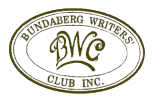I’ve found the sites in this round-up all contain at least one helpful tip, idea, observation – most contain many more than one. However, we don’t imagine each site will be universally useful.
We hope you enjoy dipping into them and we hope you find advice you can make use of.
Story Starter: Random opening lines for the clicking. Not that they always make sense, but each one I clicked carried the seed of a story. Rather than an opening line, each could represent a simplified nut graf.
Daily Writing Tips: A favourite site. Free tips on everything writing, from punctuation to style to freelancing. A monthly fee gets you Pro membership.
Babbles from Scott Eagan: Glimpse inside an agent’s head space. Lots of food for thought for writers, including tips on building a social media presence.
United States Copyright Office: If you’re intending to publish in the US, may as well know their rules. Check their FAQs as a starter.
Absolute Write: Interviews with authors (I like this one with PN Elrod), opinion pieces and all the usual stuff. Notable because of an active forum – more than 60000 writers talking about it and, if possible, answering your questions.
If you have found some favourite sites, comment to share.

